In the heart of Uganda's lush forests, where the rhythm of life plays out in a delicate symphony, the Bulindi Chimpanzee Habitat Restoration Project steps into the limelight, sharing its compelling narrative on BBC's Planet Earth III. This ambitious initiative not only captivates audiences with its enchanting story but also resonates as a powerful call to action, urging the world to recognise the intricate dance between human communities and the endangered chimpanzee population.
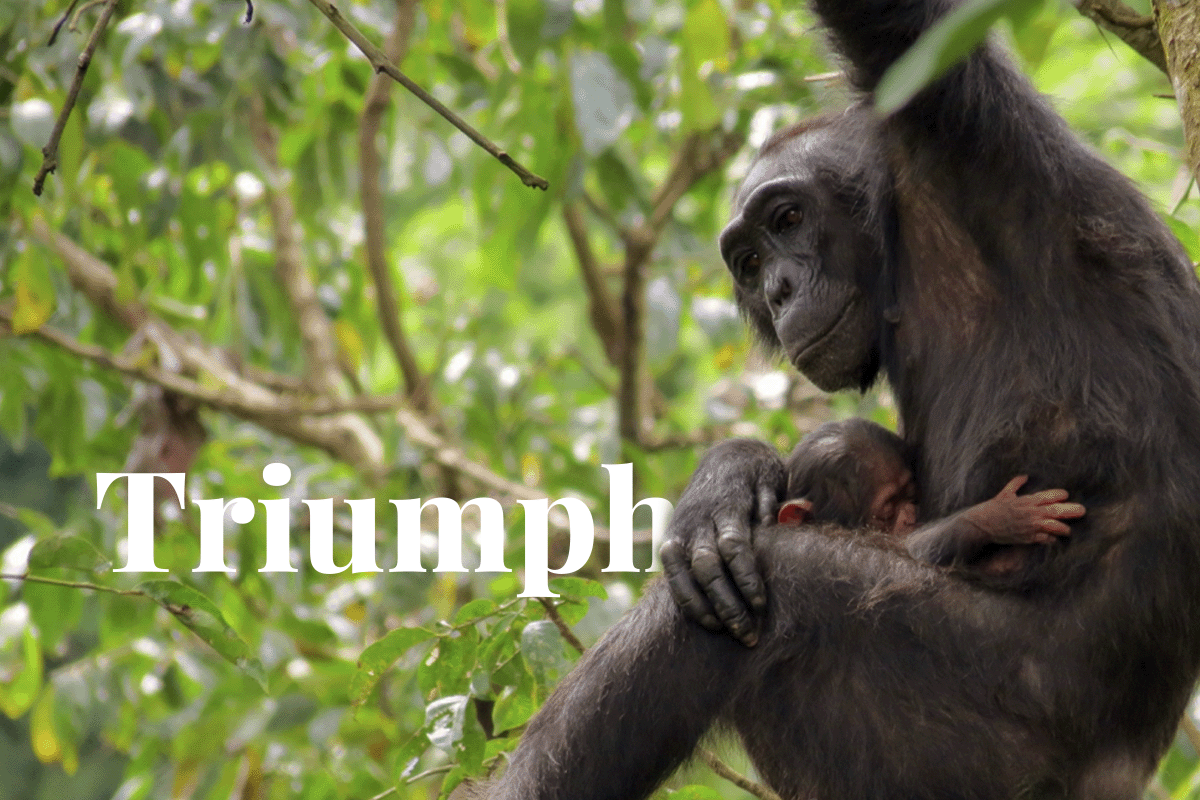 Female Bulindi chimpanzee feeding her baby in a tree.
Female Bulindi chimpanzee feeding her baby in a tree.
Planet Earth III: a cinematic odyssey into forest realms
Narrated by the legendary Sir David Attenborough, Planet Earth III has become a global phenomenon, enchanting millions with its breathtaking visuals and insightful storytelling. The series, including the Forests episode on the world's forests and the Bulindi chimpanzees in Uganda, serves as a visual masterpiece, highlighting the interconnectedness of life and the urgent need for global conservation efforts. Aired on 19 November 2023, the episode not only captivates but educates, offering a profound perspective on the challenges faced by species like chimpanzees due to rampant deforestation.
Watch BBC’s Planet Earth III episode featuring the Bilindi chimpanzees
As David Attenborough journeys into the hidden world of forests, the documentary unveils the unseen connections that bind life in the most unexpected ways. From the temperate rainforests of Canada to the teak forests of India, the forests of planet Earth reveal a tapestry of life where every tree is an intricate ecosystem. However, the poignant truth emerges: 15 billion trees fall victim to human activity each year, and in the Amazon, vibrant ecosystems are replaced by eucalyptus plantations, turning rich and complex worlds into green deserts.
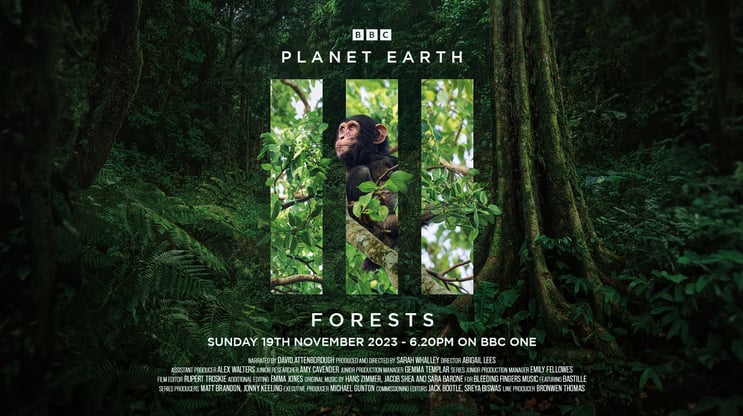 Poster of the BBC documentary Planet Earth III - Series 1, Episode 5: Forests. Credit: BBC
Poster of the BBC documentary Planet Earth III - Series 1, Episode 5: Forests. Credit: BBC
Behind the lens: Abigail Lees and the Forests episode
At the helm of the Forests episode is Abigail Lees, a Producer/Director at the renowned BBC Natural History Unit. Lees, whose work has taken her to some of the most remote places on all seven continents, co-directed the Forests episode and field directed for the Human episode. Her lens captured the village chimpanzees of Uganda, the impact of eucalyptus monoculture in Brazil, Ecuadorian treehoppers, the North American Spirit Bear, Mexican monarch butterflies, the Amazon fires, and Australian city tawny frogmouths.
In an exclusive Q&A, Sarah Whalley, another experienced wildlife filmmaker and Producer/Director for the Forests episode, shares her passion for storytelling and innovative approaches to conservation. Whalley's highlights include capturing footage inside a hornbill nest for the first time, filming dholes hunting together, treehoppers’ maternal behaviour, and telling a powerful chimp conservation story in Uganda.
Bulindi Chimpanzees: navigating a human world
The Bulindi Chimpanzee Habitat Restoration Project takes centre stage in the documentary, offering a unique glimpse into the lives of these remarkable primates. Living in close proximity to human communities, the chimps face daily challenges, traversing agricultural lands and navigating through human-planted food sources.
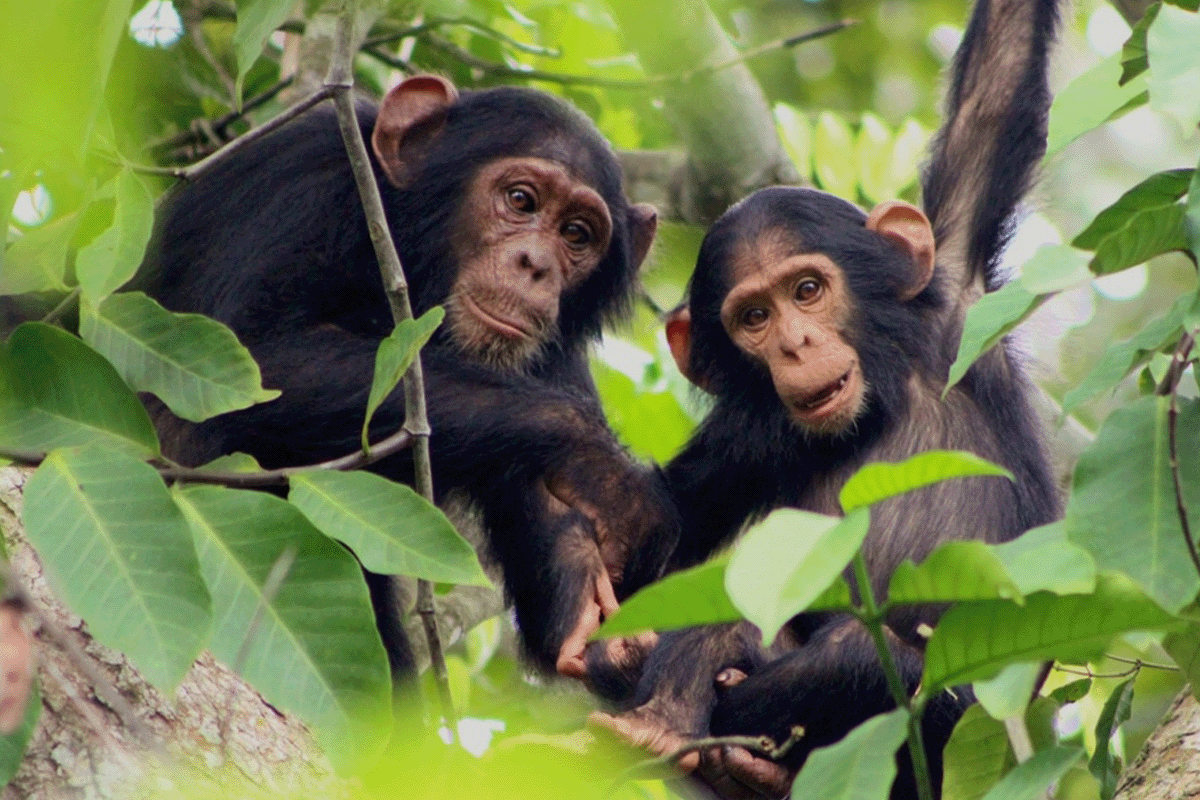 Bulindi chimpanzees, brothers Gerald and Merrick, sitting in a tree, Bulindi Chimpanzee Habitat Restoration Project, DGB.
Bulindi chimpanzees, brothers Gerald and Merrick, sitting in a tree, Bulindi Chimpanzee Habitat Restoration Project, DGB.
Abigail Lees recounts the heart-stopping moments when the chimpanzees, particularly the younger males like Gerald, cross busy highways in search of sustenance. The evolving relationship between the Bulindi chimps and their human-altered environment unfolds as a gripping narrative of adaptation and resilience.
Read more: Nurturing harmony in Uganda—A Planet Earth III tale of the Bulindi Chimpanzee Project
The urgency of conservation: the Bulindi Chimpanzee Habitat Restoration Project unveiled
Established by DGB Group’s local NGO partner, the Bulindi Chimpanzee and Community Project (BCCP), in 2015, led by Dr Matt McLennan, the Bulindi Chimpanzee Habitat Restoration Project responds to the critical conservation situation in the Hoima and Masindi districts. Here, over 300 wild chimpanzees grapple with habitat loss in shrinking fragments of forest on agricultural land.
Read about our nature-restoration project in Uganda
The project's approach is holistic, engaging local communities to find sustainable solutions benefiting both chimpanzees and people. Afforestation initiatives, energy-saving stoves, seedling distribution, and forest enrichment planting form integral components of the project. By replenishing the forest with natural foods for chimpanzees and reducing future human-chimpanzee conflict, the project addresses the complex interplay between conservation and community wellbeing.
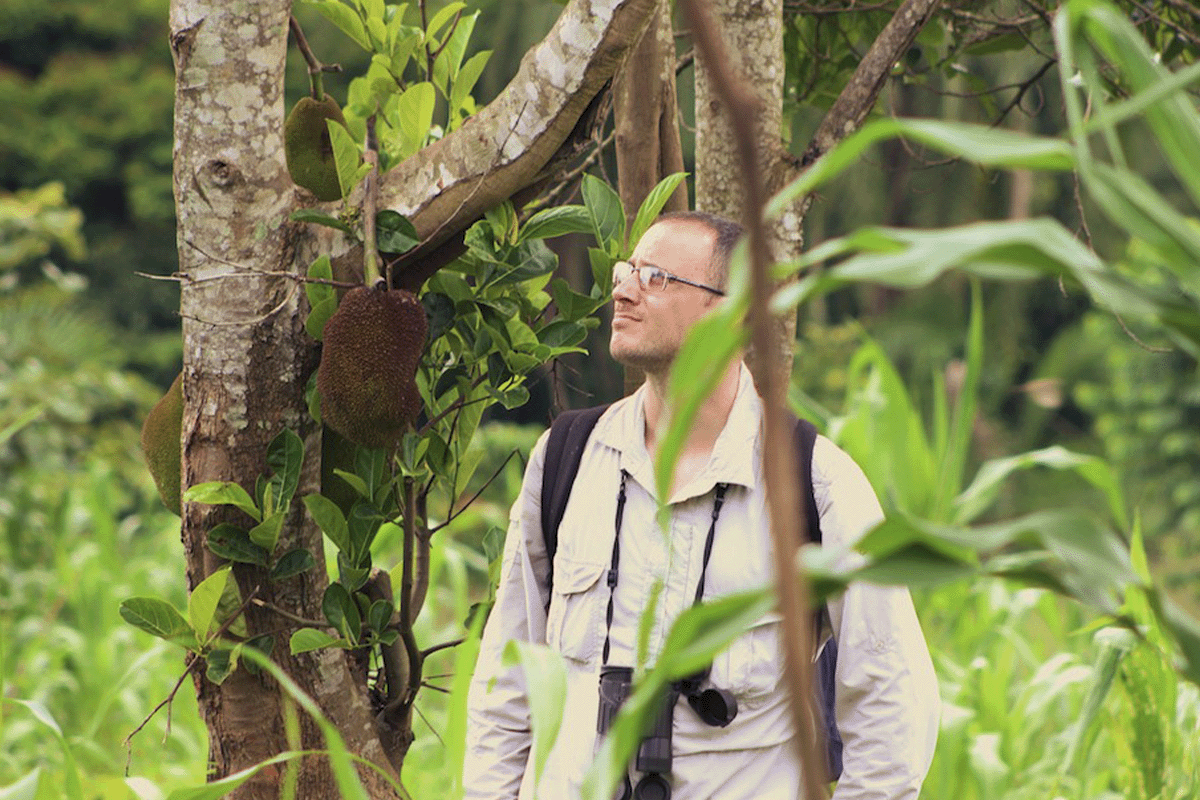 Dr Matt McLennan in a forest during his research.
Dr Matt McLennan in a forest during his research.
DGB Group: pioneering community-driven conservation
DGB, the driving force behind the project, exemplifies a commitment to community engagement and collaboration. Our model emphasises aligning projects with local needs and priorities, ensuring positive, long-term, sustainable impacts. Collaborating with local partners, conducting consultations, developing community projects, providing training, and protecting local livelihoods are integral elements of DGB's ethos.
Beyond conservation: empowering communities
The Bulindi Chimpanzee Habitat Restoration Project extends its positive impact beyond preserving chimpanzee habitats. By investing in education, supporting small household projects, and constructing village boreholes, the project enriches the lives of local communities. Energy-efficient stoves and seedlings for woodlots alleviate pressure on remaining natural forests, contributing to a harmonious coexistence between humans and wildlife.
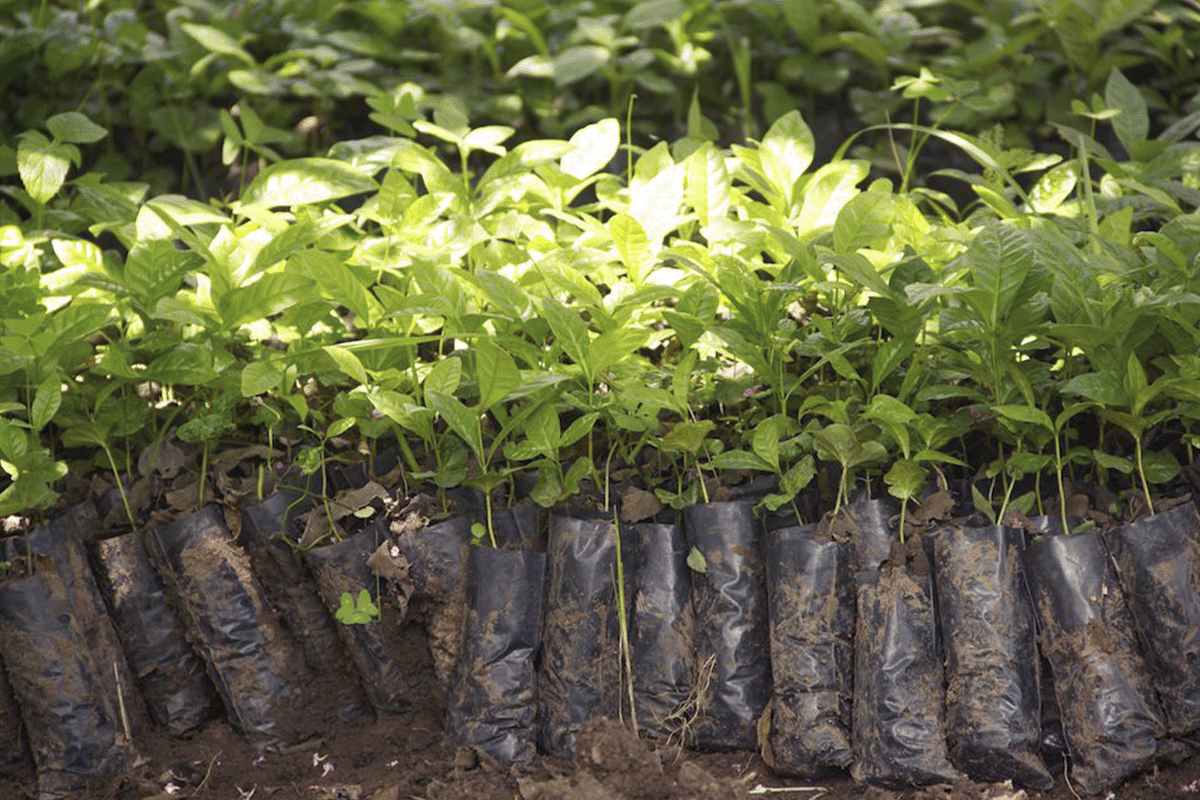 Close-up of young tree seedlings, Bulindi Chimpanzee Habitat Restoration Project, DGB.
Close-up of young tree seedlings, Bulindi Chimpanzee Habitat Restoration Project, DGB.
Innovative ways of aiding biodiversity to flourish
In a unique intersection of innovation and biodiversity, the project employs innovative strategies. Villagers, predominantly owning the forests in the area, actively participate in forest restoration by growing seedlings in nurseries. The nuanced choice of cash crops, with a focus on chimp-friendly options like coffee, demonstrates a thoughtful balance between sustaining local livelihoods and protecting chimpanzee habitats.
Water project: mitigating conflicts
Recognising the potential conflicts between villagers and chimpanzees at open water sources, the project initiated a water project. Installing wells in the middle of villages not only provides dedicated water sources for villagers but also mitigates potentially dangerous interactions between chimpanzees and children. The harmonious coexistence envisioned by the project extends to educating communities on appropriate interactions with chimpanzees, fostering a sense of openness and friendliness towards their chimp neighbours.
Read more: How the reforestation project in Uganda benefits the Bulindi chimpanzees
Conservation education: nurturing understanding
As part of the education process, the project community managers undertake training for both children and adults. Beyond tree planting, they provide scientifically proven guidance on appropriate interactions with chimpanzees, fostering a deeper understanding of their habits. The Bulindi community distinguishes itself by not engaging in chimp hunting, creating an environment where humans and chimpanzees coexist in harmony.
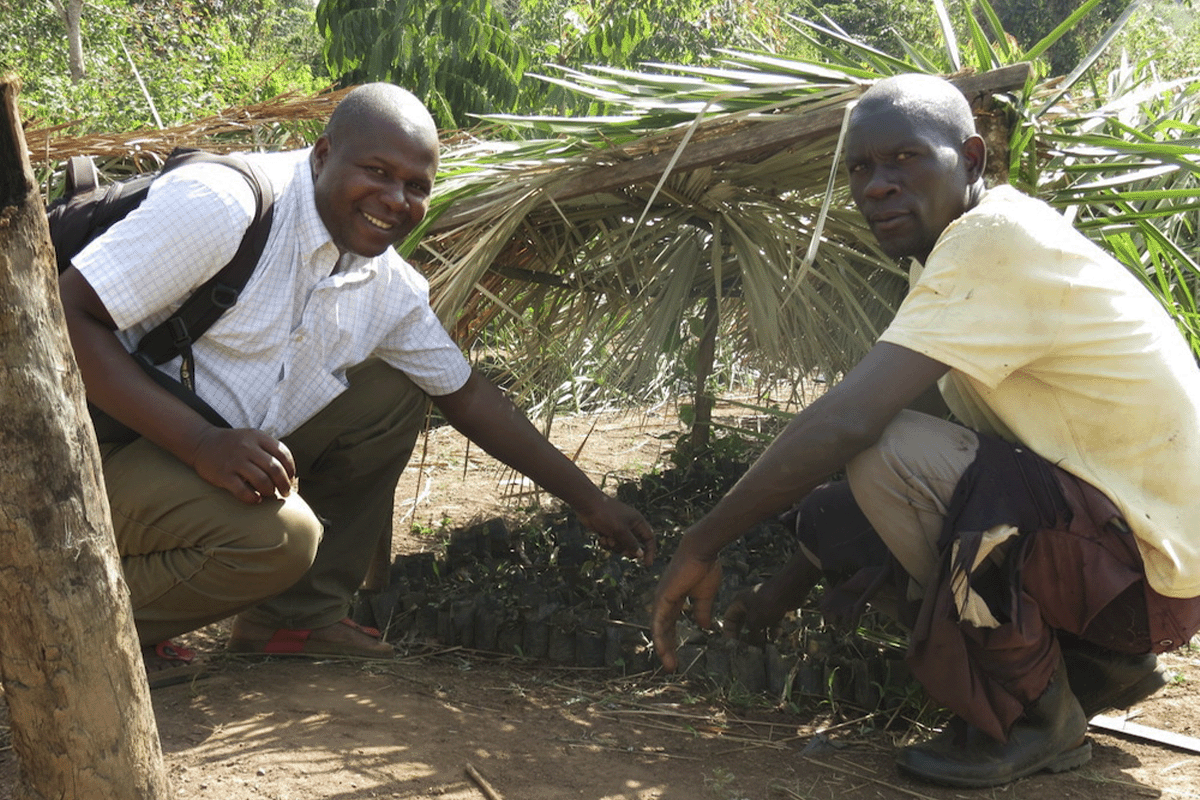 Project Manager, Moses, with Nursery Attendant, Patrick, at a tree nursery.
Project Manager, Moses, with Nursery Attendant, Patrick, at a tree nursery.
Project impact: a testament to success
The Bulindi Chimpanzee Habitat Restoration Project, operating under the Gold Standard, ensures the highest standards of transparency, verifiability, and positive social and environmental impacts. The use of leading carbon standards guarantees the quality of carbon credits generated by the project, reinforcing its credibility in various carbon markets.
The impact of the project extends to the numbers: 4.5 million trees to be planted, 4.3 million tonnes of CO₂ to be captured, and 8,290 hectares to be reforested. These metrics reflect a commitment not only to chimpanzee habitat restoration but also to the broader health of the ecosystem.
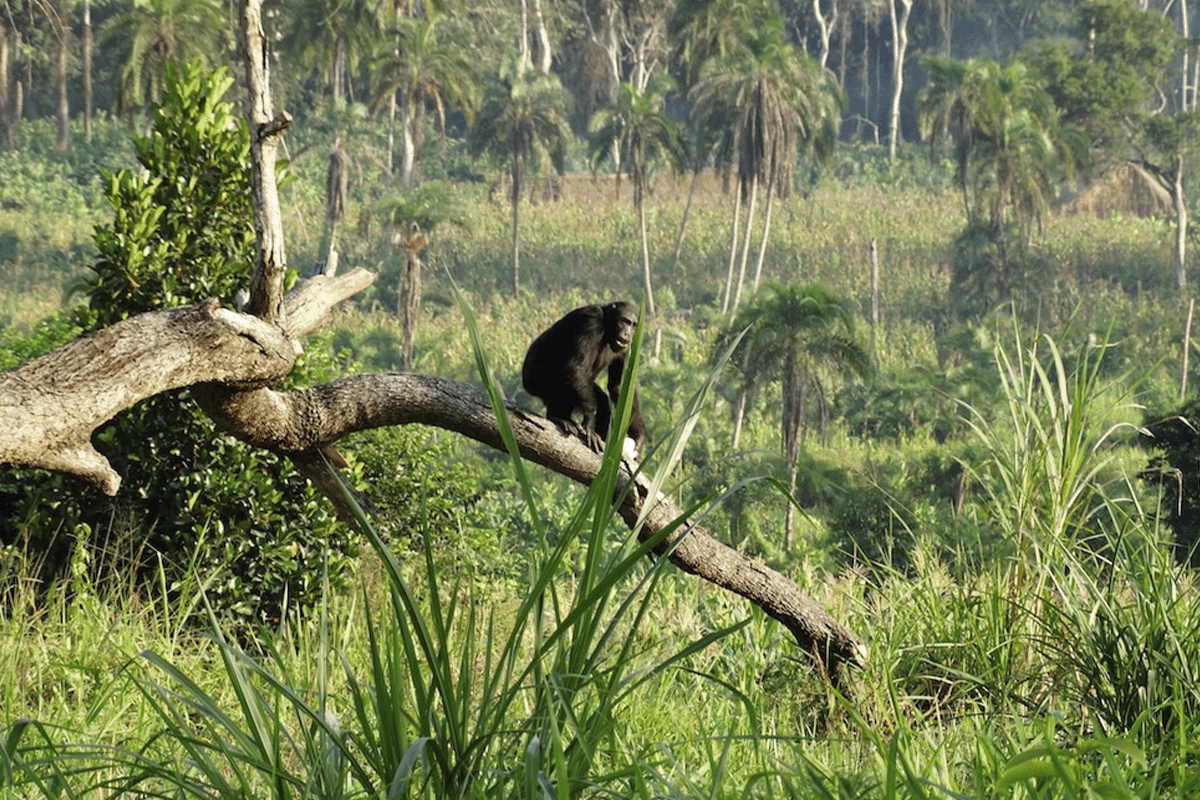 View of a Bulindi chimpanzee sitting in a tree in a forest.
View of a Bulindi chimpanzee sitting in a tree in a forest.
DGB Group’s symphony of conservation triumph
In a world where the delicate balance between nature and human progress hinges on the edge, the Bulindi Chimpanzee Habitat Restoration Project emerges as a symphony of conservation triumph. From the captivating visuals of Planet Earth III to the intricate workings of the restoration project, the narrative unfolds as a powerful testament to the interconnectedness of all life.
As the Bulindi project aligns the needs of chimpanzees and local communities, it beckons us to recognise our responsibility as stewards of the planet. In the echoed message of Sir David Attenborough, let this be a rallying call for global conservation efforts, reminding us that in protecting the chimpanzees of Bulindi, we are safeguarding a piece of our shared ecological heritage. May this symphony resound, inspiring a future where the dance of life in the forests continues unabated and harmonious.
Be part of the Bulindi chimpanzees’ habitat restoration







